From the vibrant lanes of Hauz Khas to the serene landscapes of Sweden, and from textile design studios to her lush permaculture garden in Dehradun, Anuradha Singh’s journey is nothing short of inspiring. Artist, entrepreneur, eco-practitioner and long-distance runner — Anuradha wears many hats, each shaped by a deep commitment to living a conscious and creative life.
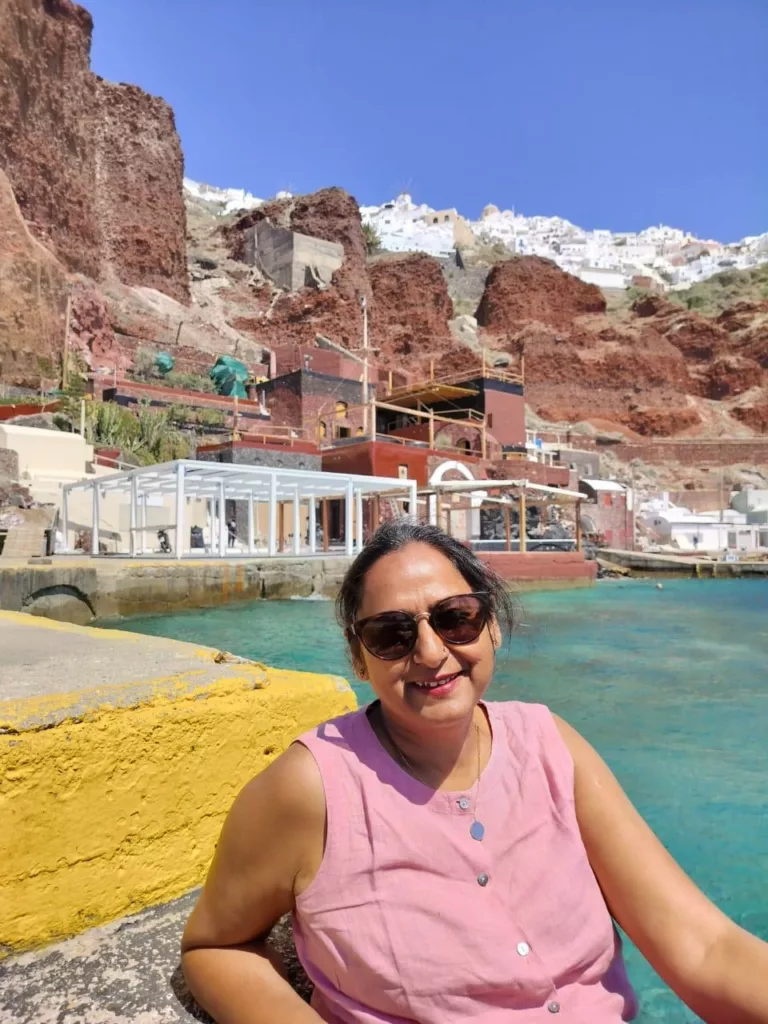
Recently, her journey reached a significant milestone when one of her watercolour paintings — a reflective landscape inspired by her hometown — was selected for Olympiart 2024, an international exhibition organised by the International Watercolor Society (IWS India). For Anuradha, this moment was both validating and unexpected.
“When I first picked up a paintbrush seriously in 2018, I could not have imagined that my work would one day be displayed on a global platform,” she told Connected to India’s Sudipto Maity during a recent interaction.
But the seeds of Anuradha’s creativity were sown much earlier. Growing up with a love for nature and drawing, she began sketching plants, flowers and trees in her teenage years. Her fascination with form, colour, and texture naturally led her into the world of fashion.
After studying textile and fashion design, she built a career in design education before taking the entrepreneurial leap in 2010 with her own fashion label, Samprada.
Samprada: A celebration of Indian textiles

Under Anuradha’s leadership, Samprada grew into a brand synonymous with mindful, environmentally responsible fashion. Rooted in Indian textile heritage, the label celebrated handwoven fabrics, natural dyes, and indigenous crafts. With retail outlets in Delhi, Gurgaon, and briefly in Hyderabad, and with collaborations through shop-in-shop models in places like Neemrana and Pondicherry, Samprada had a strong physical presence.
The label also reached customers pan-India through exhibitions and its e-commerce website launched in 2013.
“Samprada gave me a strong foundation in understanding not only design but also consumer choices and how fashion impacts the environment,” she recalled. “It was a deeply fulfilling journey.”
However, the COVID-19 pandemic in 2020 dealt a blow to many small and mid-sized fashion businesses. With a shift in consumer priorities and logistical challenges, Anuradha eventually chose to wind down operations. In 2022, she sold the Samprada trademark and its digital presence, deciding to fully focus on her other passions — painting, gardening, and living a sustainable life.
From canvas to compost: The art of living consciously
Post-Samprada, Anuradha immersed herself in the world of watercolour art, a medium she had long admired but only pursued seriously after attending classes with Sikander Singh in Chandigarh. Later, she trained under Amit Kapoor in Delhi and Björn Bernström in Sweden. The subtlety and spontaneity of watercolour appealed to her deeply.
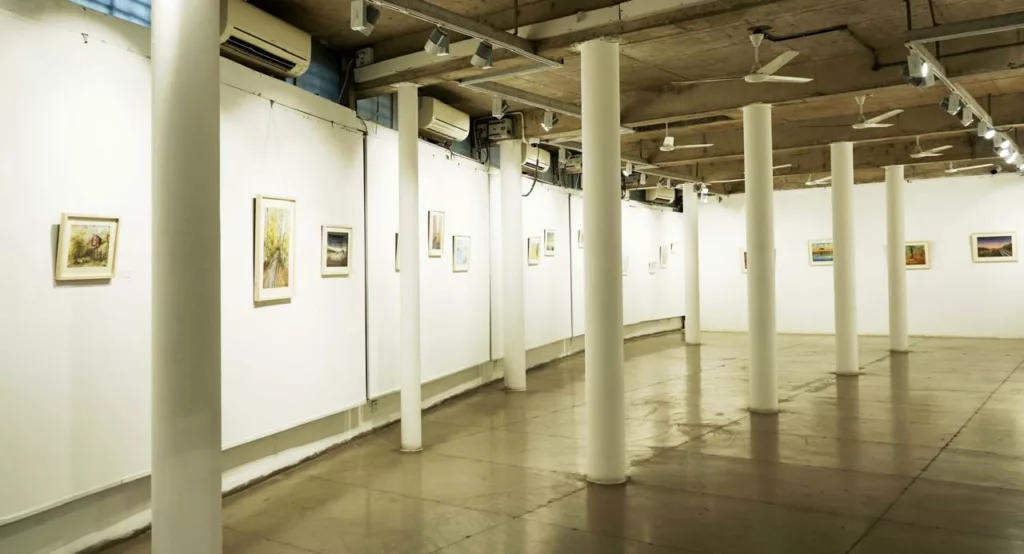
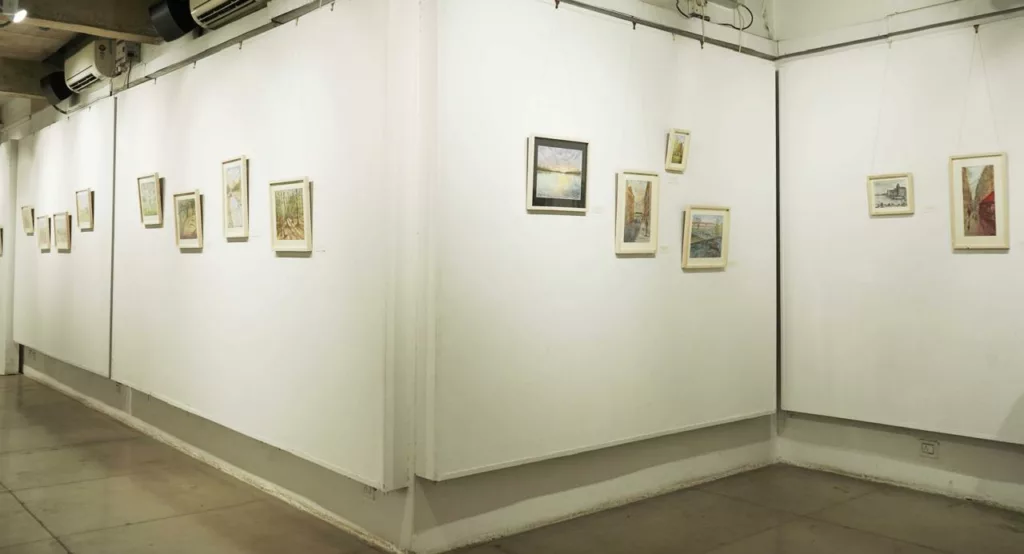
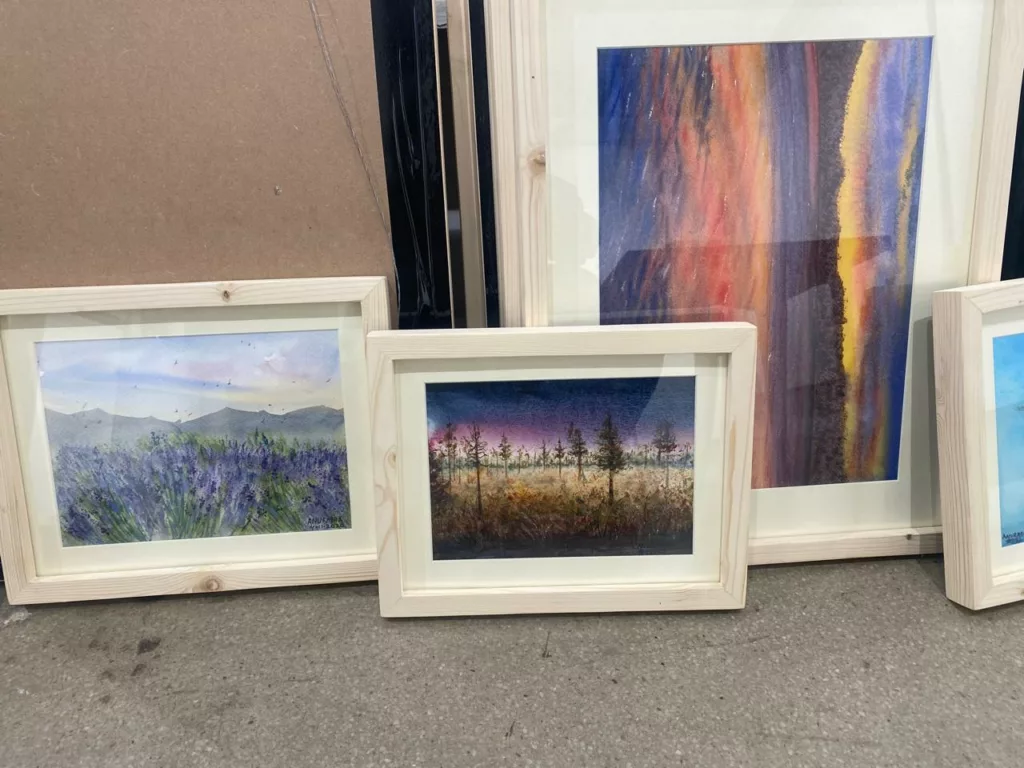
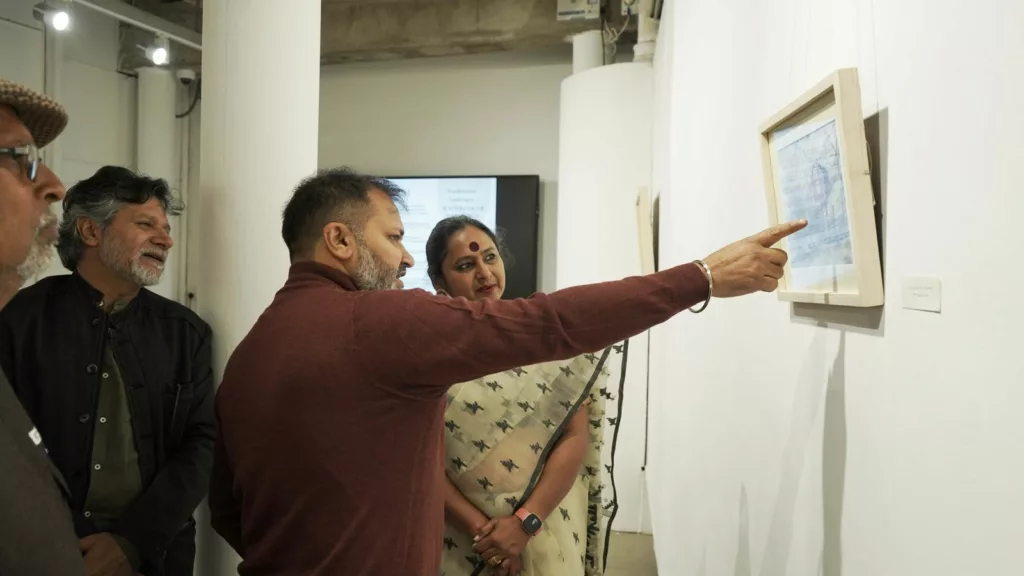
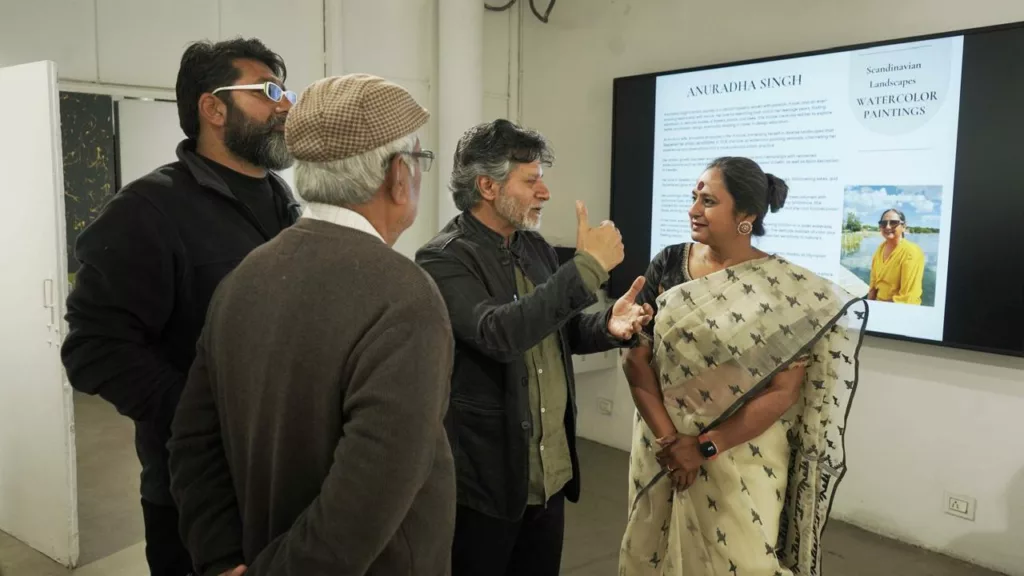
“There’s a softness to watercolours—a transparency that allows you to capture not just the landscape, but also the atmosphere, the emotion,” she explained.
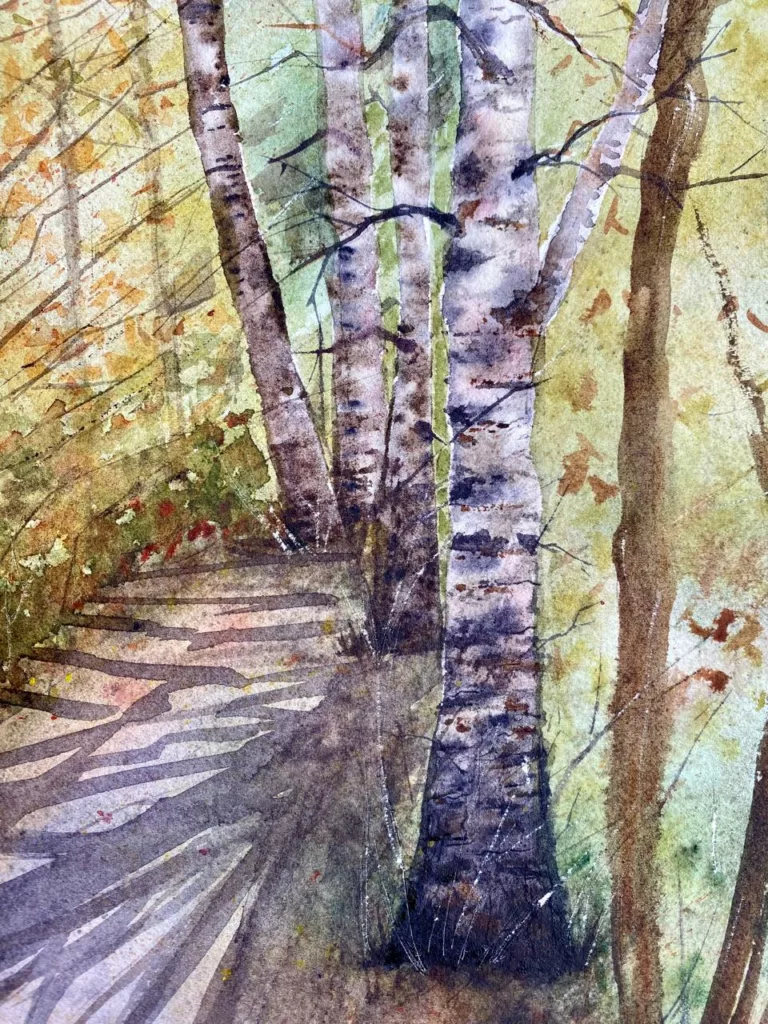
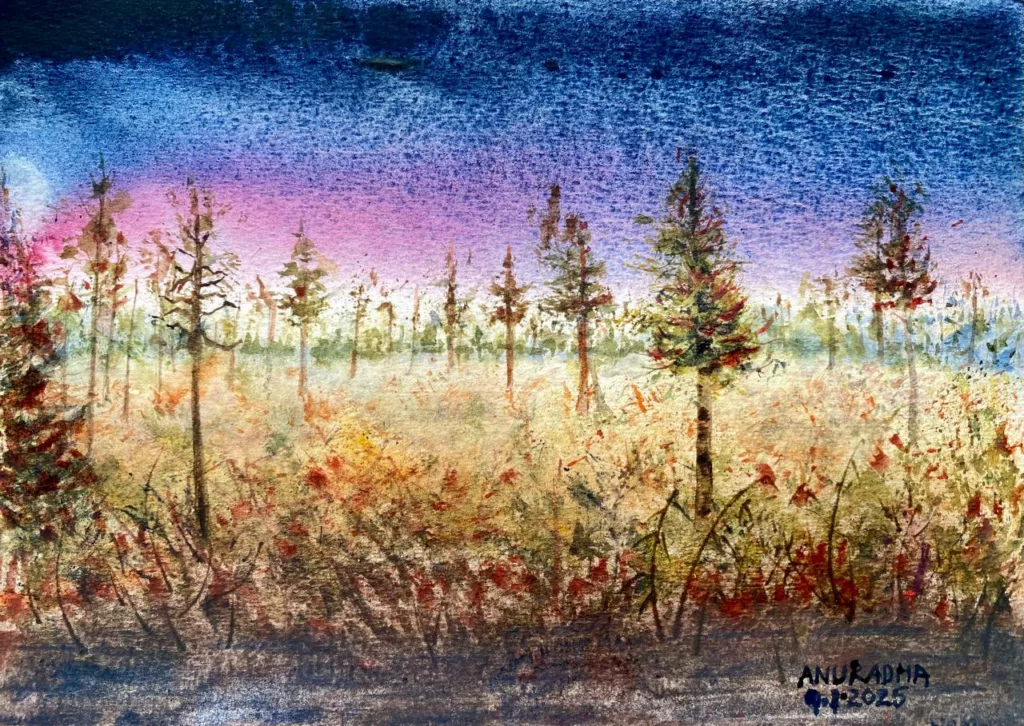
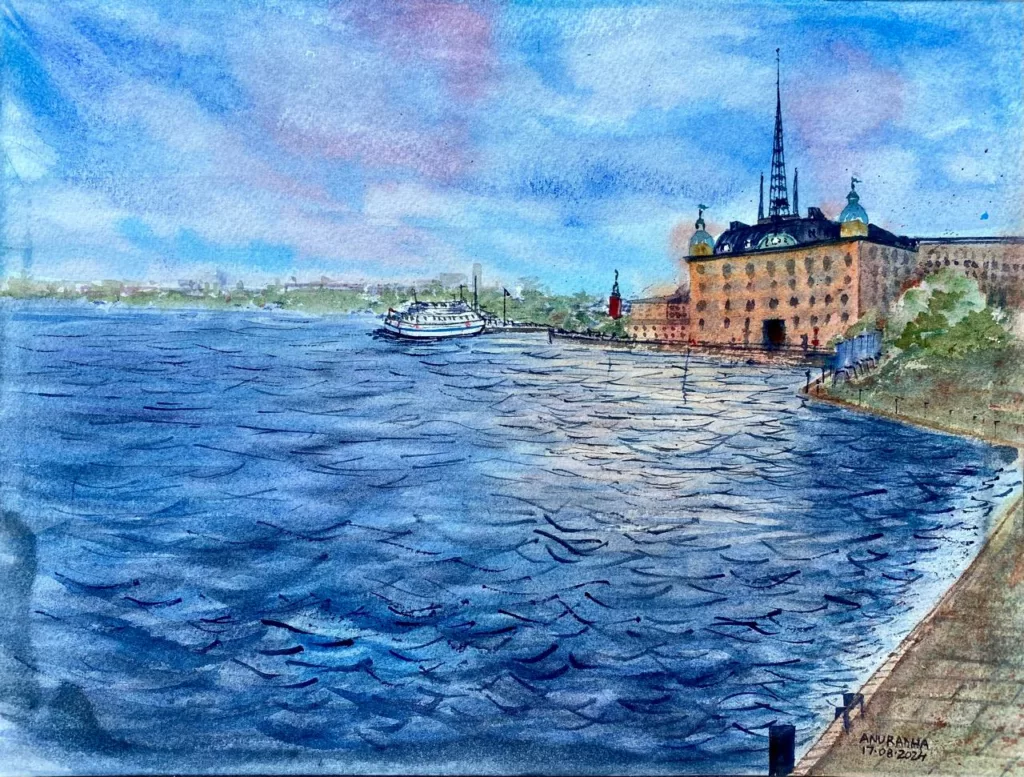
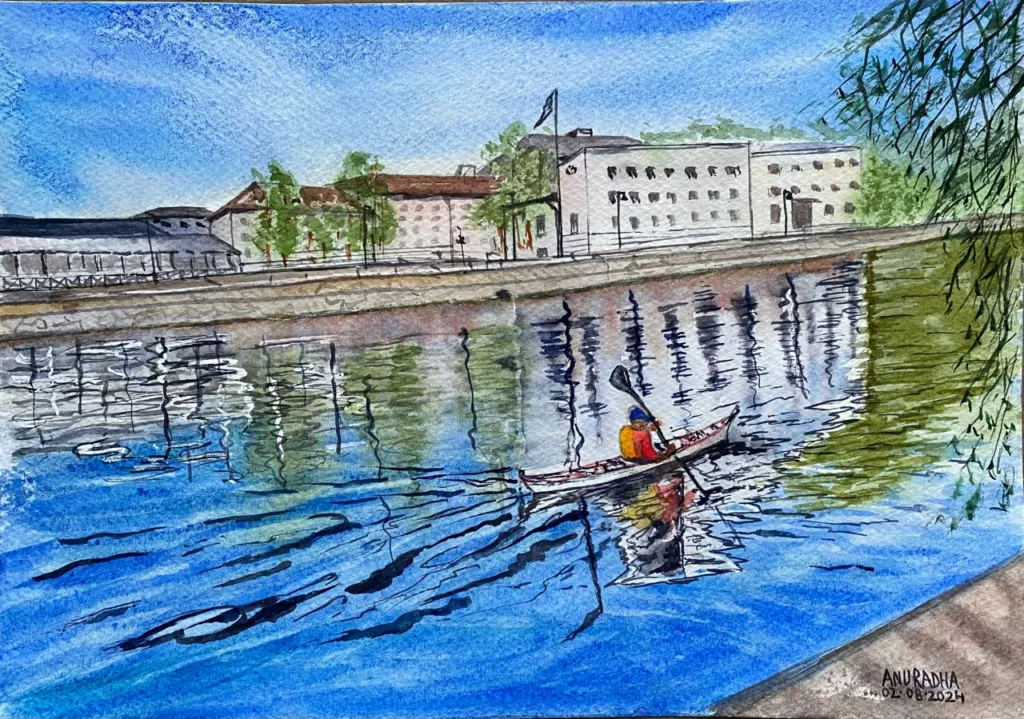

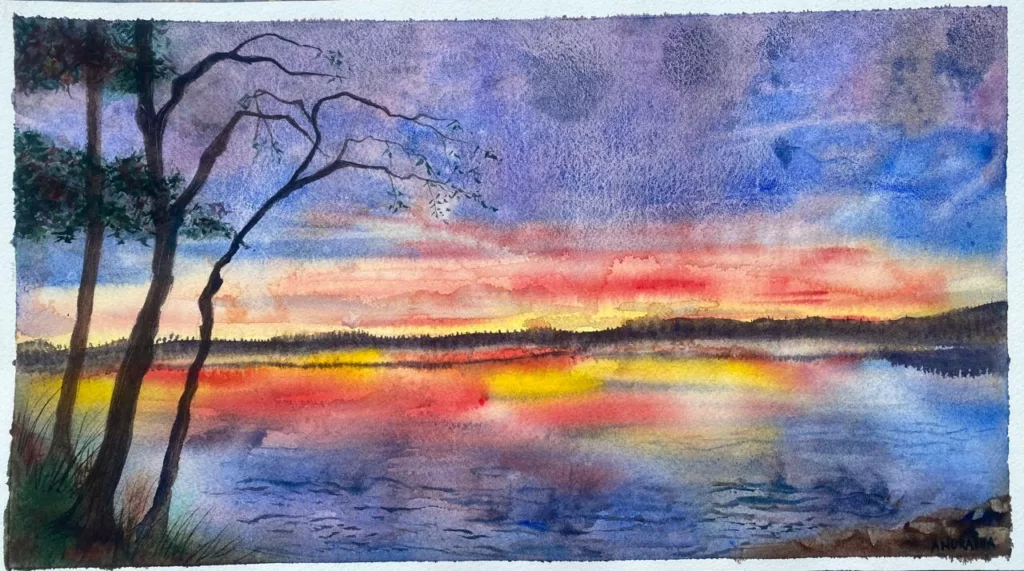
Her artworks often depict quiet natural scenes: misty mornings by a lake, autumn trees with golden hues, or a lone boat moored under a glowing horizon. Many are inspired by her frequent travels to Sweden, where the Nordic light and serene beauty have become recurring motifs in her work.
But Anuradha’s creativity isn’t confined to paper. Her commitment to sustainability finds expression in her home garden in Dehradun, which she has carefully nurtured using permaculture principles. She holds a permaculture design certificate from Clea Chandmal in Goa and has worked with her sister to create a food forest on their family farm.
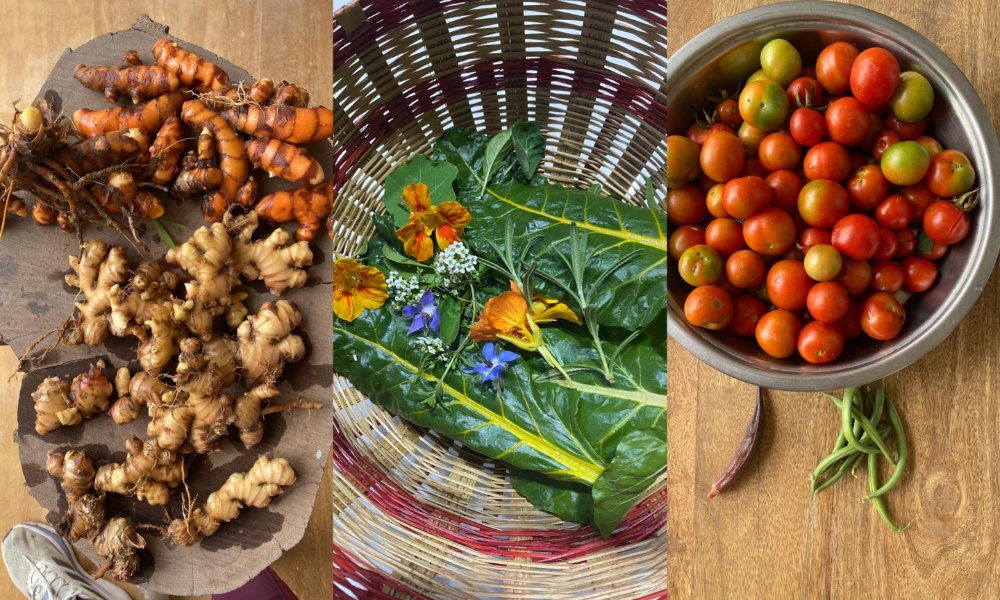
For the uninitiated, she explained permaculture simply: “It’s a permanent way of growing food that respects the Earth, the people, and ensures fair share — not just for humans, but for animals, plants, soil microbes, everything.”
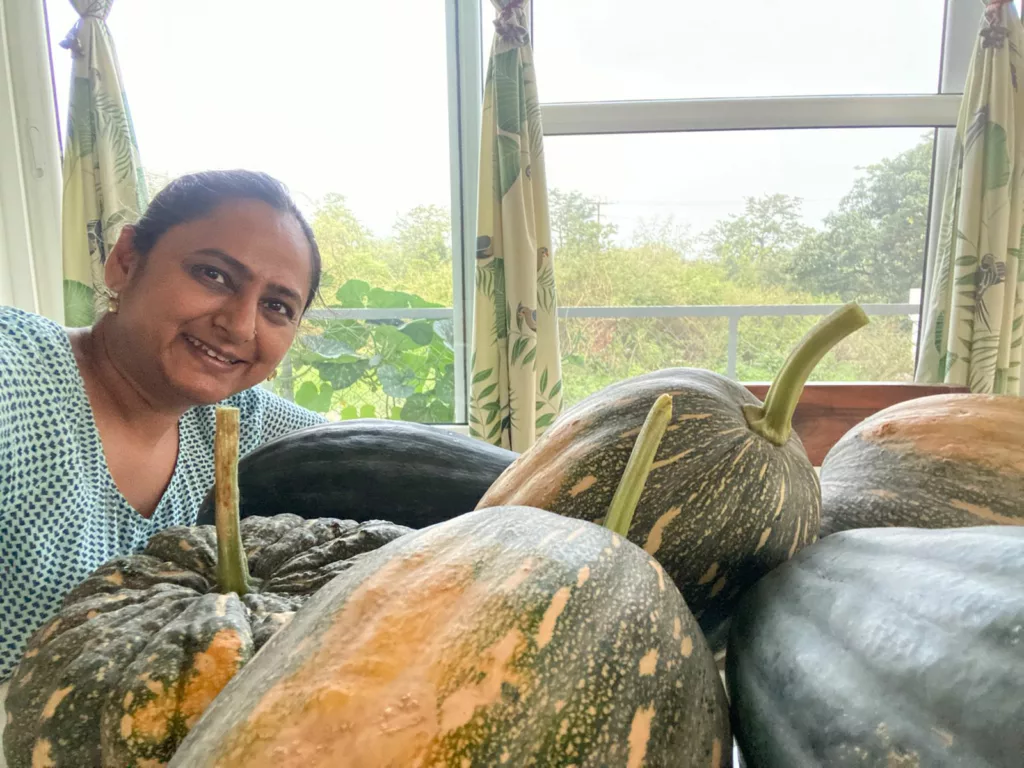
She composts her kitchen waste, grows seasonal herbs and vegetables, and has designed her urban garden as a self-sustaining ecosystem. “The food we grow should not only nourish our bodies but also replenish the soil. That’s the goal,” she said.
Eco-printing: Art that returns to the Earth
In 2021, during the second wave of COVID-19, Anuradha discovered eco-printing, a sustainable textile art form that uses real leaves and natural minerals to imprint patterns on fabric. The technique originated in Australia and has gained popularity globally over the last two decades. For Anuradha, it was a natural extension of her interests.
“Each leaf is like a fingerprint — no two imprints are ever the same. The results depend on the plant, the soil, the water, the season. Every print tells a story,” she said.
She was surprised to discover that India lacked a comprehensive directory of eco-printable leaves and plants. Since then, she has been experimenting with local flora, documenting the patterns and colours they produce. What makes eco-printing so appealing to her is its complete circularity — there’s no use of chemicals, and the leftovers can be composted.
Running the long race — in life and on the road
Beyond her artistic and ecological pursuits, Anuradha is also an accomplished long-distance runner. She began running at the age of 45 and has completed nine half-marathons (21.1 kms) so far in eight years.

“Running has changed my life. It teaches you discipline, perseverance, and mental strength. Once you conquer your mind, your body follows,” she says. The sport, she adds, has helped her navigate not just physical milestones, but also the ups and downs of life with grace and resilience.
Finding purpose in simplicity
When asked what drives her diverse pursuits, Anuradha responds with quiet clarity: “It’s about living life meaningfully, making conscious choices, and creating time for what truly matters.”
Today, she divides her time between her art studio, her garden, and spending time with her family in Dehradun. Whether she’s composting kitchen waste, working on a new landscape painting, or jogging along forest trails, her approach to life is rooted in simplicity and purpose.
She sums it up perfectly: “True luxury is not about expensive things—it’s about time, space, health, and the freedom to live authentically. Everyone can work towards that in their own way.”
As the world moves towards sustainable living and mindful consumption, Anuradha’s journey offers a powerful reminder that creativity and responsibility can go hand in hand — and that it’s never too late to start something new.


